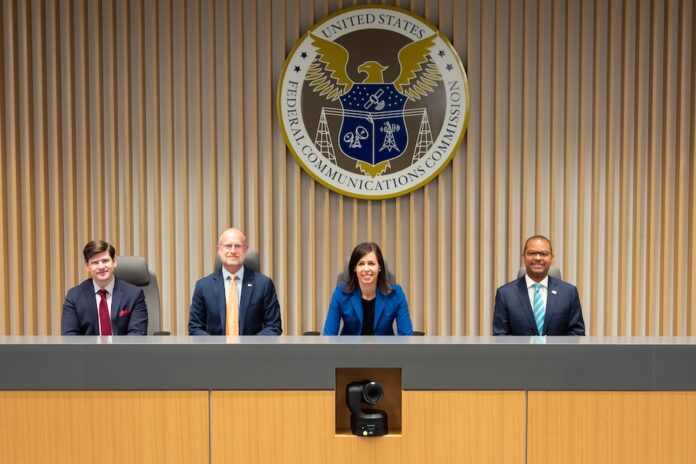The US regulator has approved seven companies’ automated frequency coordination systems – this could be a global model for other spectrum-sharing licences
The US Federal Communications Commission (FCC) has approved seven companies’ automated frequency coordination (AFC) systems, which will control how wi-fi in the country’s unlicensed 6GHz band will be deployed.
Regulators around the world will be watching closely because many nations have decided the upper half of the band – unlike the US which opted for the full 1200MHz – will be assigned to some form of shared use and to do that, interference and frequencies need to be managed tightly. This will be an even greater problem if countries decide to auction 6GHz spectrum in the upper band while still allowing some form of spectrum sharing.
Applications approved
Applications from Qualcomm, Federated Wireless, Sony, Comsearch, the Wi-Fi Alliance, the Wireless Broadband Alliance (WBA) and Broadcom were approved by the FCC’s Office of Engineering and Technology, meaning their respective systems to can manage access to the spectrum by wi-fi devices. The regulator is seeking public comment on a seventh C3Spectra which arrived after the original tranche.
The FCC said seven AFC systems have undergone a rigorous testing program, which included both lab testing and a public trial. All meet the FCC rules that are designed to prevent harmful interference from standard power access devices and fixed client devices to “licensed microwave receivers and certain radio astronomy observatories” in the 6GHz band.
The regulator took four years to develop a plan its AFC system, including the time taken for the seven companies’ trials. AFC’s benefit is that it allows standard power wi-fi access points and devices which will boost the device market, at least in the US. It does this by automatically allocating the power and strength a device can utilise in real time based on the various requests to a centralised database which contains information on the available channels and other operators that are active nearby.
Wi-fi lobby is happy
The Dynamic Spectrum Alliance (DSA) congratulated the FCC stating that AFC systems maximise spectrum availability for unlicensed technologies such as wi-fi. “By determining channel and transmit power availability at specific locations, AFC systems allow Wi-Fi 7 and Wi-Fi 6E devices to transmit at up to 63 times higher power than those limited to low-power indoor operation, while ensuring protection of incumbent user operation in the 6GHz band,” it stated. Europe’s long-suffering residential wi-fi dropout households can rest assured that mobile operators will instead use the upper 6GHz band to save 5G from being throttled just before it has a chance to thrive…
“The FCC’s decision ensures full deployment of standard power 6 GHz Wi-Fi in the United States will become a reality,” said president of the DSA Martha Suarez. “As a result, US citizens can benefit from faster, reliable broadband connectivity, no matter where they are located in the country. It has been a long process, but the DSA is delighted with the outcome and applauds the FCC for making this crucial step.”
AT&T’s key role
The FCC thanked AT&T for its role in the testing – each company had over 500 test locations. All seven AFC applicants received challenges from AT&T and the Electric Power Research Institute (EPRI). In addition, several AFC applicants also received challenges from FirstEnergy Corp.
AT&T indicated that it spent a significant amount of time working with the AFC applicants to identify the precise causes of the differences between the results calculated by the AFC systems and the results calculated by AT&T. According to the operator, these efforts, in some cases, resulted in changes to AT&T’s own calculations or in modifications to some of the AFC systems.
AT&T did ask the regulator to make the AFC system approval conditional on ensuring “compliance with inter-industry agreements” including working with the likes of WInnForum – that include both radio local area network and fixed service interest groups – to collaborate on issues affecting AFC system calculations.
The operator requested that the AFC system operators be required to provide notice in this docket of any future changes to their AFC systems that are not subject to cross-industry consensus and that the changes should be subject to FCC review.
The FCC acknowledged AT&T’s caveats and while not going as far as what the operator wanted, said it will continue to monitor developments in the band that could affect system calculations and could require system changes if warranted.


